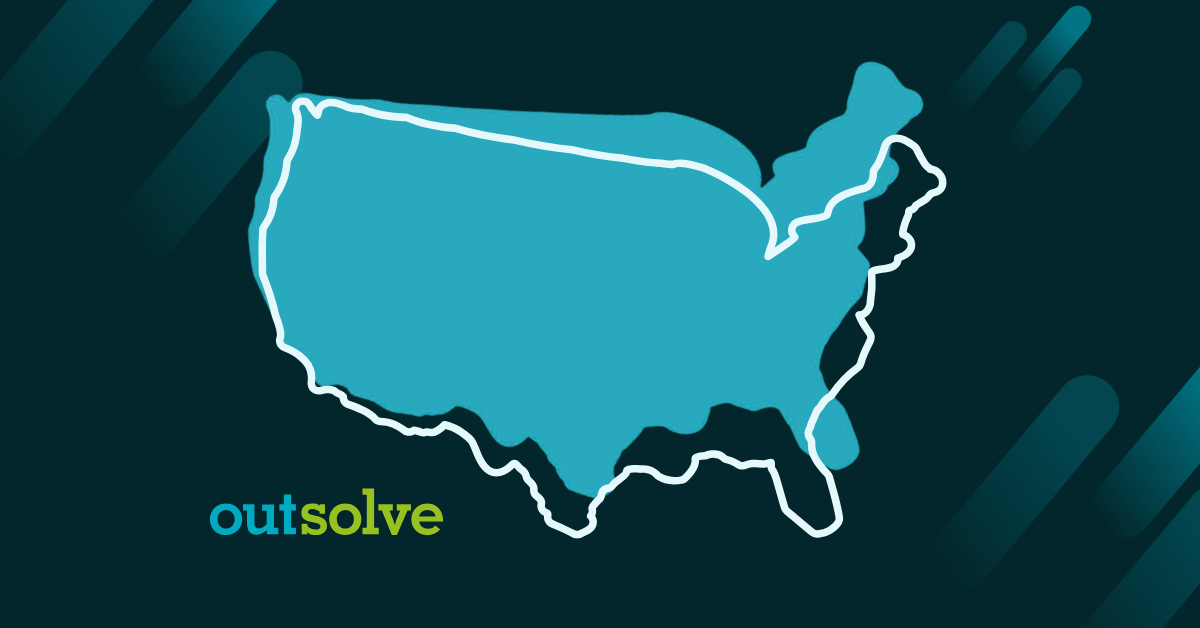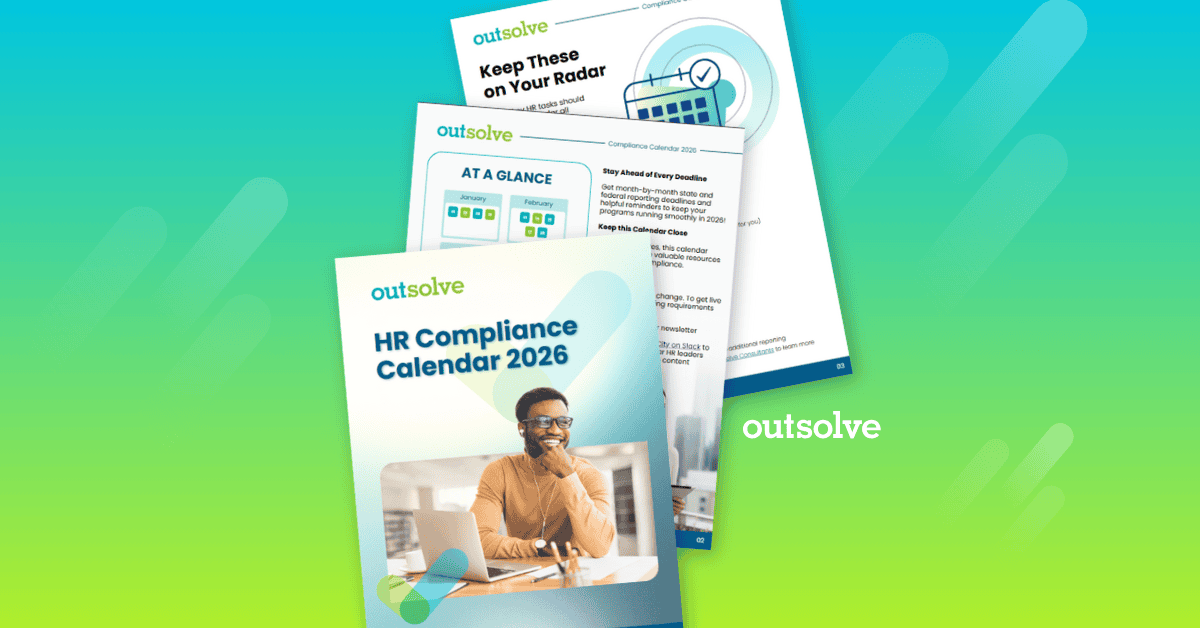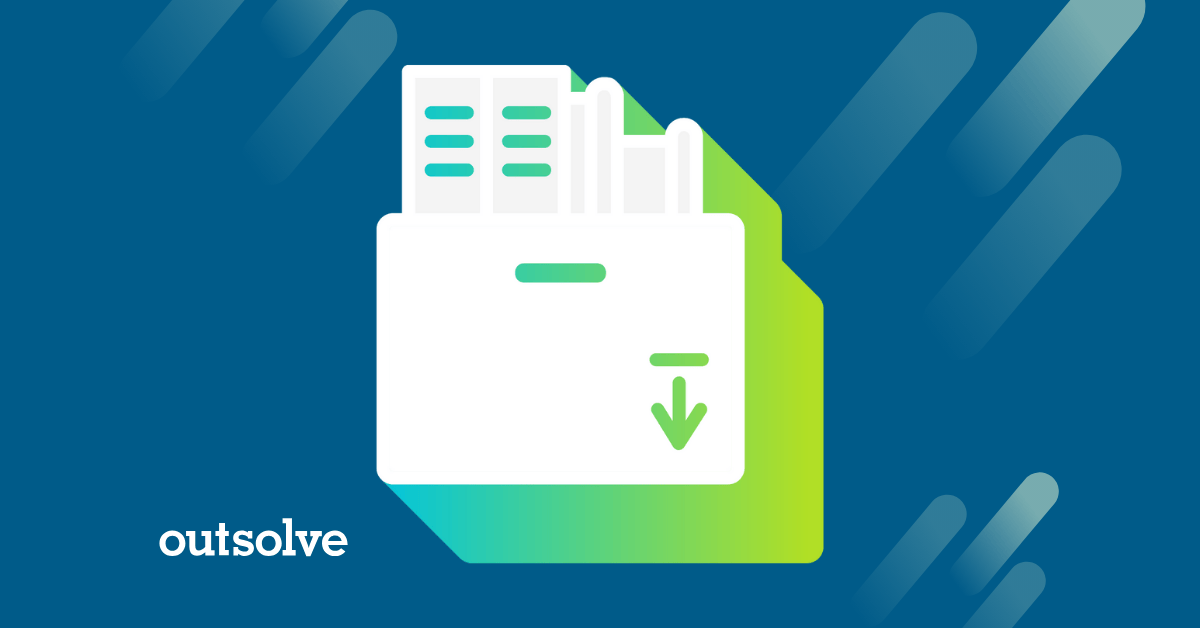6 min read
E-Verify Requirements Across the States
 Desiree Throckmorton, SPHR
:
Oct 28, 2025 8:15:00 AM
Desiree Throckmorton, SPHR
:
Oct 28, 2025 8:15:00 AM

HR Teams are always trying to do it all—we’re compliance partners, onboarding experts, and often the first line of defense in making sure our organizations don’t run afoul of employment laws. One area that’s growing increasingly complex, especially for multi-state or hybrid employers, is Form I-9 and E-Verify compliance.
Whether your company operates in one or multiple states, understanding which states require E-Verify is a must for staying on the right side of both federal and state regulations.
Let’s explore why. Here are three key takeaways you’ll learn in this article:
- A refresher on what E-Verify is
- How state E-Verify laws vary
- What you can do to keep your organization compliant
What Is E-Verify?
Let’s start with the basics. E-Verify is a federal, web-based system that allows employers to electronically confirm that their employees are authorized to work in the U.S. It compares information from an employee’s Form I-9 to records from the Social Security Administration (SSA) and Department of Homeland Security (DHS).
While the program is voluntary for many employers, it is mandatory for those federal contractors and subcontractors that have the clause in one of their contracts as well as some state and local jurisdictions. In addition to the federal requirements, many states mandate employer use of E-Verify. State E-Verify requirements are quite varied, which creates a complicated overall compliance framework.
Why State Requirements Matter
If you’re a multi-state employer, then you already know the challenge. E-Verify requirements by state can vary widely. Some mandate it for all employers while others mandate it only for public-sector organizations or businesses with government contracts.
So, if you’re hiring across state lines, failing to understand and comply with each state’s rules could lead to penalties, contract losses, or even legal trouble. If your business is located in a state that does not mandate the use of E-Verify for all employees, and you are hiring a remote worker in a state that requires it, you should consult counsel about which state’s laws apply.
E-Verify Required States
Here’s a breakdown of states that require E-Verify, including those with statewide mandates and those with partial or conditional requirements. Always double check with your compliance experts, as laws change.
| State | Requirement | |
|
Alabama |
Mandatory for all employers |
|
|
Arizona |
Mandatory for all employers |
|
|
Florida |
Required for public employers and certain private employers with 25 or more employees |
|
|
Georgia |
Mandatory for public employers and private employers with 11 or more employees |
|
|
Indiana |
All public employers, often extending the obligation to public contractors |
|
|
Louisiana |
State contractors and sub-contractors must use E-Verify |
|
|
Michigan |
Mandatory for contractors and subcontractors of the state’s transportation department, as well as Macomb County (all employers entering into contracts of $20,000 or more) and Oakland County (all contractors and vendors) |
|
|
Minnesota |
State contractors must use E-Verify for contracts over $50,000. |
|
|
Mississippi |
Mandatory for all employers |
|
|
Missouri |
Public employers; employers with a contract or grant with the state in excess of $5,000; and any business entity receiving a state-administered or subsidized tax credit, tax abatement, or loan from the state |
|
|
Nebraska |
All public employers, often extending the obligation to public contractors |
|
|
North Carolina |
All public employers, private employers with 25+ employees, and all contractors and subcontractors |
|
|
Oklahoma |
All public employers, often extending the obligation to public contractors |
|
|
Pennsylvania |
Private construction businesses, including subcontractors at all tiers, and state public works contractors on projects where the total cost is $25,000 or more |
|
|
South Carolina |
Mandatory for all employers |
|
|
Tennessee |
Mandatory for private employers with 35+ employees. Very specific record keeping requirements for employers with 6-34 employees. |
|
|
Texas |
Public employers, including institutions of higher education, and state contractors |
|
|
Utah |
Public employers and private employers with 150+ employees (some exceptions) |
|
|
Virginia |
All public employers and all state contractors with over 50 employees. |
|
|
West Virginia |
Service providers whose employees are regulatory employed on the grounds or in the buildings of the state Capitol Complex |
|
Note that Illinois does not require employers to use E-Verify, but the state recently passed legislation under its Right to Privacy Act requiring employers who use the E-Verify system to post in their workplace a Right to Privacy in the Workplace & E-Verify poster.
This list isn’t exhaustive of every nuanced local ordinance, but it gives you a solid overview of the E-Verify states with standing mandates as of July 2025. The U.S. Citizenship and Immigration Services (USCIS) has an E-Verify Supplemental Guide for Federal Contractors.
For more detailed information, you can check out this helpful I-9 and E-Verify resource guide from OutSolve.
States with Voluntary E-Verify Participation
These states currently do not require E-Verify: Alaska, Arkansas, California, Connecticut, Colorado*, Delaware, Hawaii, Illinois, Iowa, Kansas, Kentucky, Maine, Maryland, Massachusetts, Montana, Nevada, New Hampshire, New Jersey, New Mexico, New York, North Dakota, Ohio, Oregon, Rhode Island, South Dakota, Vermont, Washington (but some of its counties require it), Wisconsin, and Wyoming.
*CO had an E-Verify mandate for several years, but it was repealed in 2016. The District of Columbia does not have an E-Verify requirement.
If you are an employer in one of those states, you can choose to use E-Verify voluntarily.
How Do State E-Verify Laws Differ?
One of the biggest challenges for HR teams is that no two states treat E-Verify exactly the same. Here are the most common approaches among states that have E-Verify mandates:
- Full mandate: States like Arizona and South Carolina require all employers, public and private, to use E-Verify.
- Public employers only: States such as Missouri and Texas mandate E-Verify only for government agencies and public sector employers.
- Threshold-based mandates: States like Georgia and Tennessee base requirements on employer size (e.g., companies with 10+ or 35+ employees).
- Contract-based mandates: Some states require E-Verify only if a company is working under a state contract or subcontract.
- Local ordinances: Even if your state doesn’t require E-Verify, some counties and municipalities might. It’s essential to verify local laws before assuming you’re in the clear.
When in doubt? Partner with compliance experts who are familiar with E-Verify and its rules.
Why E-Verify Compliance Matters
If you're legally required to use E-Verify and don’t, the consequences can be severe. Here’s why compliance should be high on your priority list:
- Work Authorization Verification: E-Verify confirms that your employees are authorized to work in the U.S., adding an extra layer of security beyond Form I-9.
- Avoid Penalties: Noncompliance can lead to civil fines, business license suspension, or disqualification from state contracts.
- Prepare for Audits: ICE audits can happen. Having a solid E-Verify and Form I-9 process in place helps you stay prepared.
- Federal Contractor Requirements: If you’re working on federal contracts, you may be required to use E-Verify under FAR (Federal Acquisition Regulation).
Bottom line is that even if you're in a state where it's optional, using E-Verify can mitigate risk and strengthen your hiring compliance. It’s also important to note that if your organization hires remote employees, you must be enrolled in E-Verify in order to remotely verify Section 2 of Form I-9. This requirement applies to both verifying Section 2 in-house or using a trained I-9 authorized representative.
Keep in mind that if you enroll in E-Verify, you must E-Verify all newly hired employees. You cannot use E-Verify only for your remote or telework employees and not use it for your in-person hires. The hiring of just one employee in a jurisdiction with mandatory E-Verify could impact your entire future hiring process.
How Employers Can Stay Compliant with E-Verify Mandates
Managing compliance across multiple jurisdictions can be tricky, but a proactive approach can save you a lot of headaches later. Here are some best practices:
- Know Your States: Review E-Verify requirements by state before hiring in a new location.
- Train Your Team: Make sure your HR staff understands when and how to use E-Verify. Mistakes during onboarding can lead to liability and penalties.
- Build It into Onboarding: Automate E-Verify and Form I-9 processes as part of your hiring workflow to reduce errors.
- Keep Your Records Audit-Ready: Maintain accurate and accessible Form I-9 documentation and E-Verify results for each employee.
- Seek Expert Help: Outsourcing or partnering with compliance experts can help ensure you’re not missing anything, especially when laws change.
Why Choose OutSolve for I-9 and E-Verify Support
At OutSolve, we understand how difficult it can be to manage varying compliance requirements, especially when you’re juggling multiple locations or large hiring volumes. That’s why OutSolve offers an end-to-end I-9 solution with E-Verify built right in.
Here’s what makes our solution different:
- Seamless E-Verify Integration: We automatically send E-Verify queries when your new hires complete a Form I-9, reducing manual processes and errors.
- TNC Escalation Alerts: If an employee receives a Tentative Nonconfirmation (TNC), we will escalate it to you immediately so you can resolve it fast.
- Compliance Confidence: With real-time dashboards and audit logs, your records are always ready for inspection.
What E-Verify Means for Your Organization
Understanding which states require E-Verify is not just a legal necessity. It’s part of being a strategic HR leader. From statewide mandates to local nuances, the rules continue to change, and staying ahead of compliance protects your company, your contracts, and your team.
Ready to simplify your Form I-9 and E-Verify compliance? Contact OutSolve today to learn more about how we can support your workforce across all 50 states.
Desiree Throckmorton is a seasoned HR compliance professional with over two decades of experience, including significant tenure at a Fortune 500 company. In her current role as VP I-9 Operations, Senior Consultant, she provides expert guidance to enterprise-level clients on critical issues such as Form I-9 compliance, non-discrimination analysis, and best practices for pay equity and transparency. Throughout her career, Desiree has demonstrated exceptional proficiency in conducting internal proactive audits and managing external reactive audits. She has a keen eye for identifying risk areas in recruitment practices and excels in performing adverse impact analyses on employment decisions. Additionally, Desiree has successfully launched comprehensive, enterprise-wide training programs focused on Equal Employment Opportunity and Form I-9 compliance. Desiree holds the SPHR certification and has earned a Bachelor's Degree from California State University and a Master's Degree from Roosevelt University.
Weekly OutLook
Featured Posts

HR Compliance Checklist: What Every HR Pro Needs to Know

New Year, New Deadlines: 2026 HR Compliance Calendar
Related Posts

How to Compliantly Recruit for Section 503 and VEVRAA
Recruiting under Section 503 and the Vietnam Era Veteran’s Readjustment Assistance Act (VEVRAA) can feel like a balancing act, combining compliance...

Common Mistakes Employers Make in Pay Equity Audits
This article is part of an ongoing legal series designed to provide insight and practical guidance on current and emerging workplace compliance...

5 Key Compliance Items HR Can’t Afford to Ignore
Staying ahead of compliance changes can feel like a race against time for anyone in HR. Policies change and reporting requirements expand, making...

